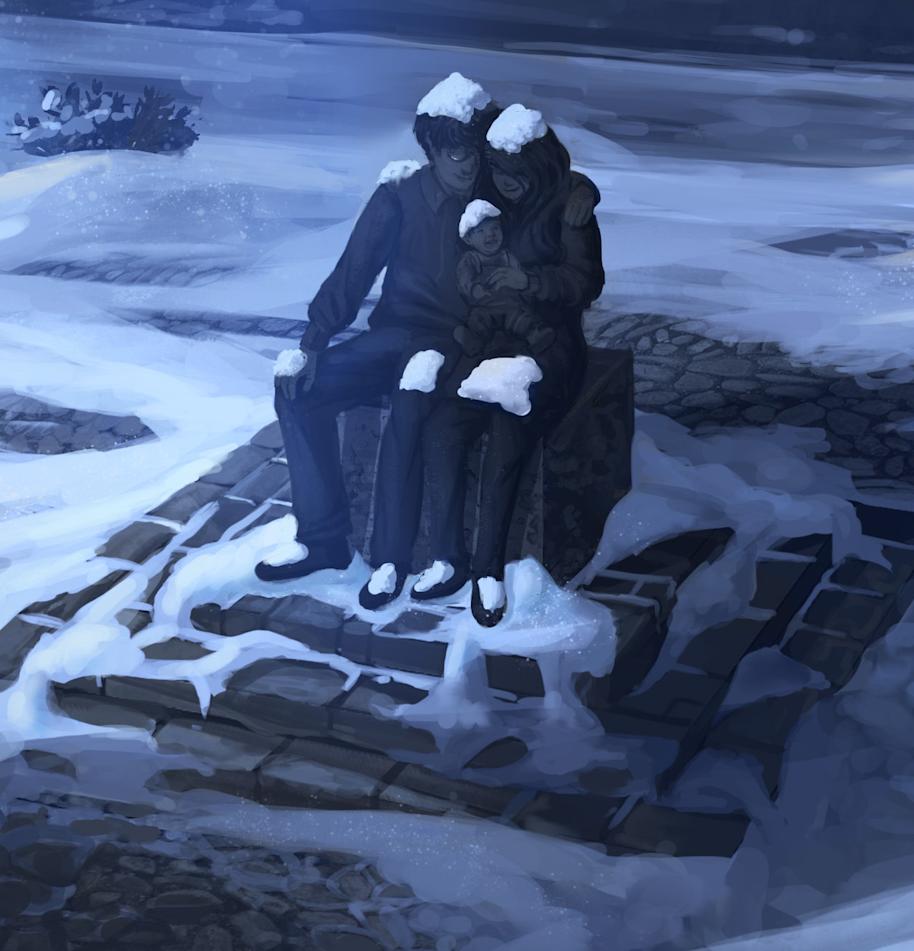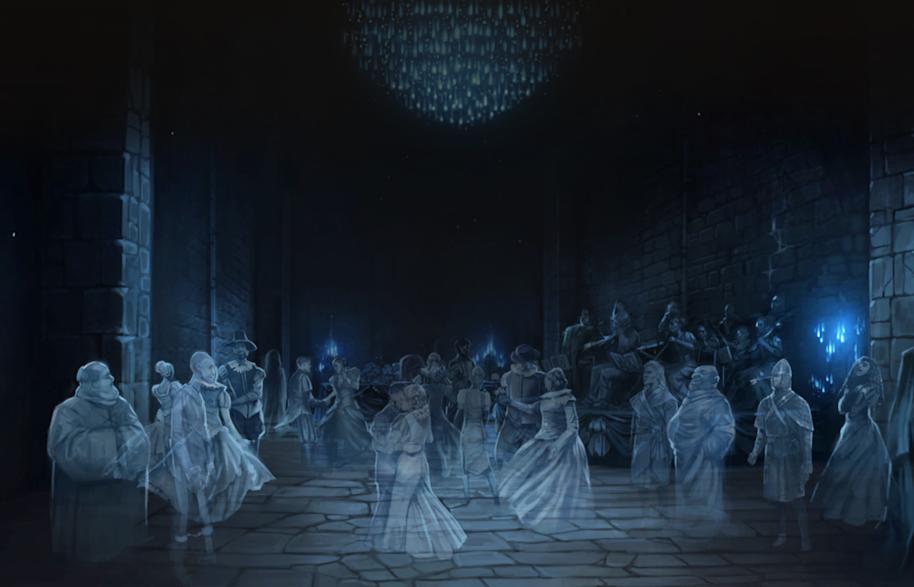
Harry Potter and the Philosopher’s Stone was not explicitly about death. No one was dying in it, for example. Nor were its actual deaths – Professor Quirrell and, off the page, we assume Nicolas Flamel – especially dramatic or shocking. But it was about death; or, at the very least, a story about coming to terms with it.
And how could it not be? Only six months after starting Philosopher’s Stone, J.K. Rowling was rocked by the death of her mother: an experience that would go on to shape not only that book, but the series as a whole. As she has said herself: ‘If [my mother] hadn’t died, I don’t think it’s too strong to say that there wouldn’t be Harry Potter. The books are what they are because she died.’
As such, Philosopher’s Stone laid the foundations for a book series all about life, death and grief. And as the book nears its twentieth anniversary, now is as good a time as any to break them down…
The book starts with the biggest death of the whole series
Death haunts Philosopher’s Stone from the very first chapter, in which we learn that something tragic has happened to a baby boy’s parents. Just like Harry himself, we don’t know it at the time, but these deaths will set the stage for the entire series, and will shape Harry’s life forever.

Harry Potter begins to grieve
Harry had always known the loss of his parents, but he never truly began to feel it until he turned 11. For beyond being the age that he found out that he was a wizard; it was also the age he learned the true fate of his parents, Lily and James. Contrary to what he had been told, it wasn’t a car accident: they were murdered.
This new information allowed Harry to process their loss in a whole new way. You saw it in the Mirror of Erised, which showed the most desperate desire of a person’s heart; or rather, Harry did. While others, such as Ron, saw themselves achieving greatness, Harry saw the life he never had: him and his parents, living happily together. For that’s the thing about death and grief: we grieve not only for the loss of the person, but the theft of their future, of what could have been; of stolen moments, stolen potential. One can waste away thinking of what may have been, but as Albus Dumbledore himself said: ‘It does not do to dwell on dreams and forget to live.’

The book sets up the series’ theme of cheating death
Lord Voldemort was many things – evil, powerful, terrifying – but above all, he was scared of death. Indeed, later in the series, Voldemort even told Dumbledore that there was nothing worse. ‘You are quite wrong,’ Dumbledore replied. ‘Indeed, your failure to understand that there are things much worse than death has always been your greatest weakness.’
This existential terror, as well as a pursuit of power, was what drove Voldemort throughout the series. It was what made him create the Horcruxes, it was what made him desire the Philosopher’s Stone, otherwise known as the key component of the Elixir of Life, which allowed the drinker to live forever. Immortality is seen, of course, as the means to conquer death, but Philosopher’s Stone questioned the idea of whether that was a triumph at all. ‘You know,’ said Dumbledore, ‘the Stone was really not such a wonderful thing. As much money and life as you could want! The two things most human beings would choose above all – the trouble is, humans do have a knack of choosing precisely those things which are worst for them.’

And that theme goes beyond the Elixir of Life
Death is not a thing to be cheated, and cheating death comes with undesirable consequences. In Philosopher’s Stone, this message wasn’t limited to just the Elixir of Life. It was made clear in other ways, too.
Take unicorn blood, which can be drunk in order to extend a person’s life; hence why we glimpse Professor Quirrell/Voldemort slurping from a unicorn carcass in the Forbidden Forest. But such vitality comes with Faustian consequences. In the words of centaur Firenze: ‘The blood of a unicorn will keep you alive, even if you are an inch from death, but at a terrible price. You have slain something pure and defenceless to save yourself, and you will have but a half life, a cursed life, from the moment the blood touches your lips.’
It’s also worth noting that Philosopher’s Stone introduces the concept of ghosts. This, in itself, raises a lot of questions about the nature of death in the wizarding world. If, for instance, wizards know that ghosts are real, then does that mean that their fear of death is different from Muggles’ fear of death? After all, much of Muggle culture is defined by the fear that there is nothing beyond death, but surely the existence of ghosts means proof that there is at least something there, therefore negating that fear?
Not exactly. Instead, the ghosts of Harry Potter are defined entirely by that very same fear, having chosen to cling to a perversion of life rather than to truly die. Nearly Headless Nick, for example, is not dead, but he is not alive either. He is cursed, just like those who drink unicorn blood, to live a half-life. In Harry Potter, there is always a penalty for cheating the inevitable.

Philosopher’s Stone sets up the series’ overall theme
At its core the Harry Potter series is about our attitudes towards death, and how we face the idea and reality of it. As mentioned above, Lord Voldemort was defined by his fear and anxiety of death, and devoted his life to conquering and worrying about it. This is no way to live, says J.K. Rowling. We must treat death as not something to be cheated, but as a natural part of life. Take her lesson on what it really means to be the Master of Death: ‘It is not about striving for immortality, but about accepting mortality.’
You see the birth of this theme in Philosopher’s Stone. Compare Dumbledore’s attitude towards death with Voldemort’s, for example. When Dumbledore told Harry that the Stone must be destroyed, therefore condemning his friend Nicolas Flamel and his wife to die, he reacted to Harry’s dismay with: ‘To one as young as you, I’m sure it seems incredible, but to Nicolas and Perenelle, it really is like going to bed after a very, very long day. After all, to the well-organised mind, death is but the next great adventure.’
It’s this attitude, and this wisdom, which will guide Harry right up until Deathly Hallows, where he must confront death himself, with a focused mind and a brave heart. And that, ultimately, is why he won, while Voldemort lost.

To celebrate the 20th anniversary of Harry Potter and the Philosopher’s Stone, Pottermore will explore themes, moments, characters and much more from the very first Harry Potter story. Come back tomorrow when we look at what would've happened if Harry, Ron and Hermione had never made friends.



